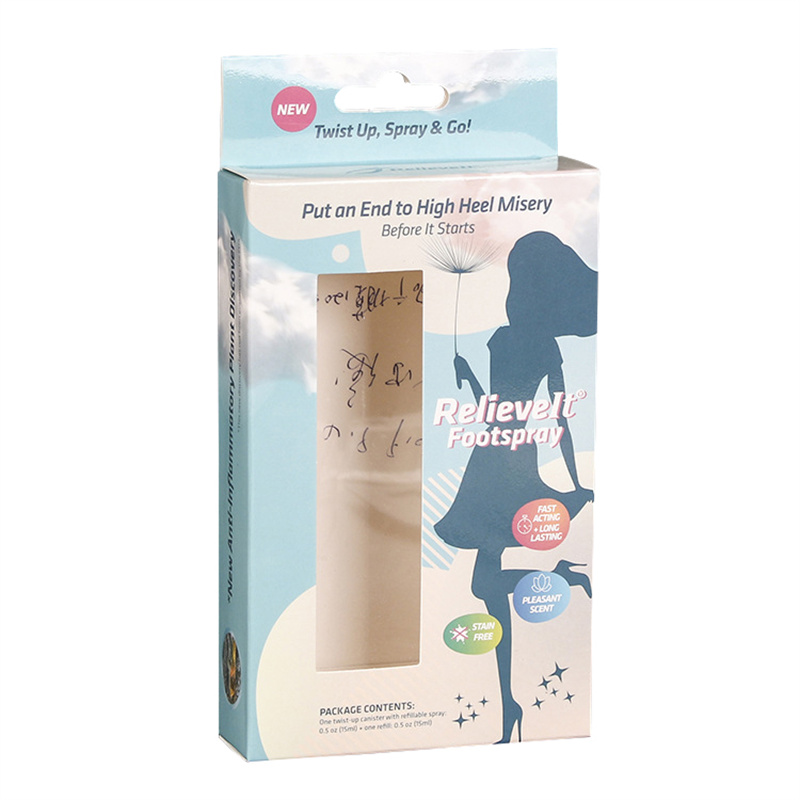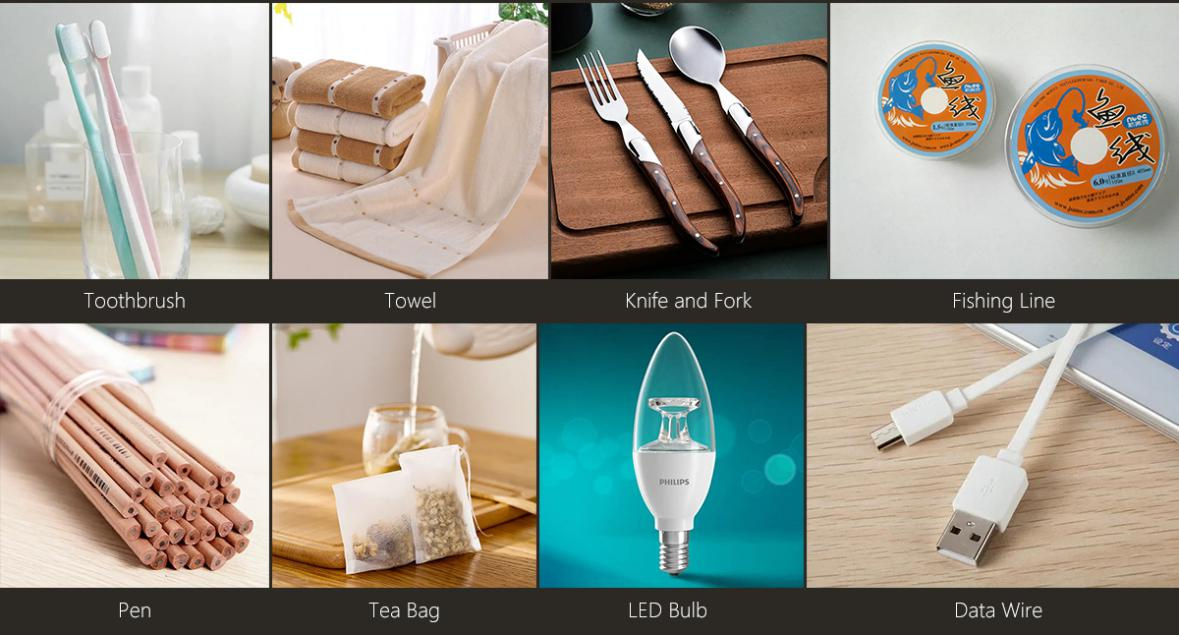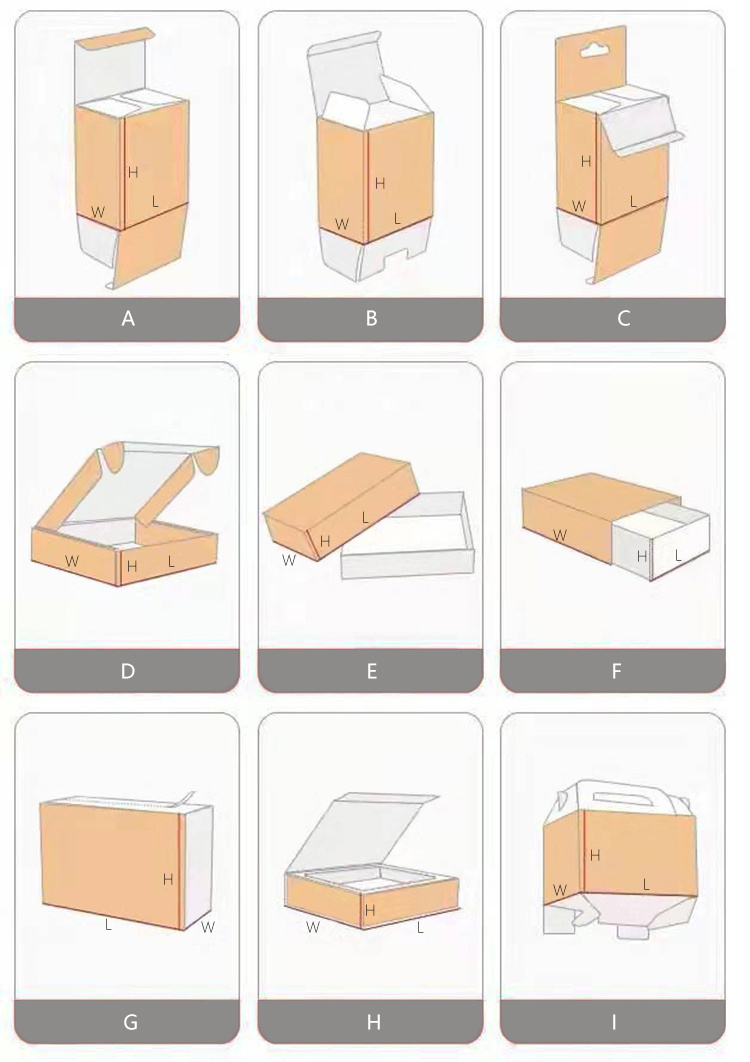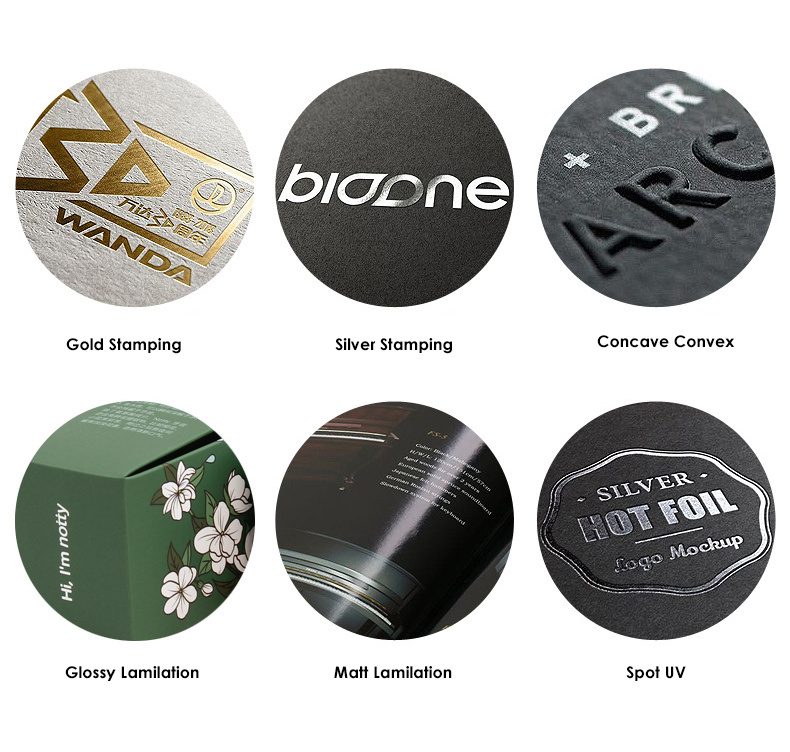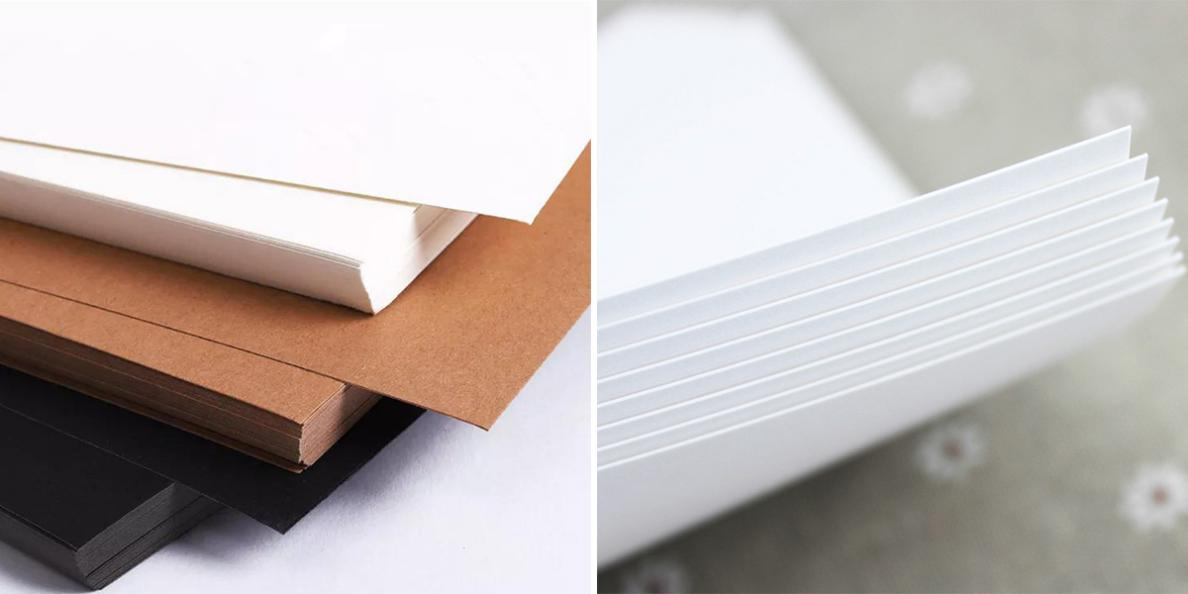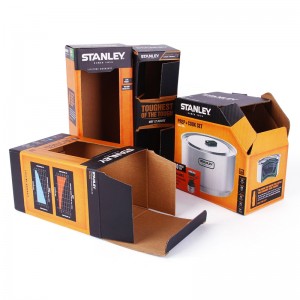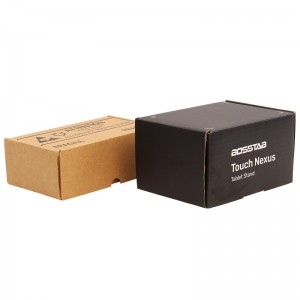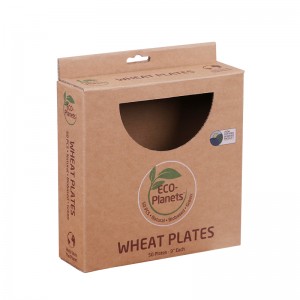custom printed reusable strong paper packaging box with handle
Description
| Structure | self-form bottom structure C box |
| Surface paper choose | coated duplex board with gray board; solid bleached sulphate board( C1S/SBS/SBB); |
| coated paper(C2S) | |
| Printing | UV printing ; Offset printing ; Water-based printing |
| Opening direction | top opening to show whole products |
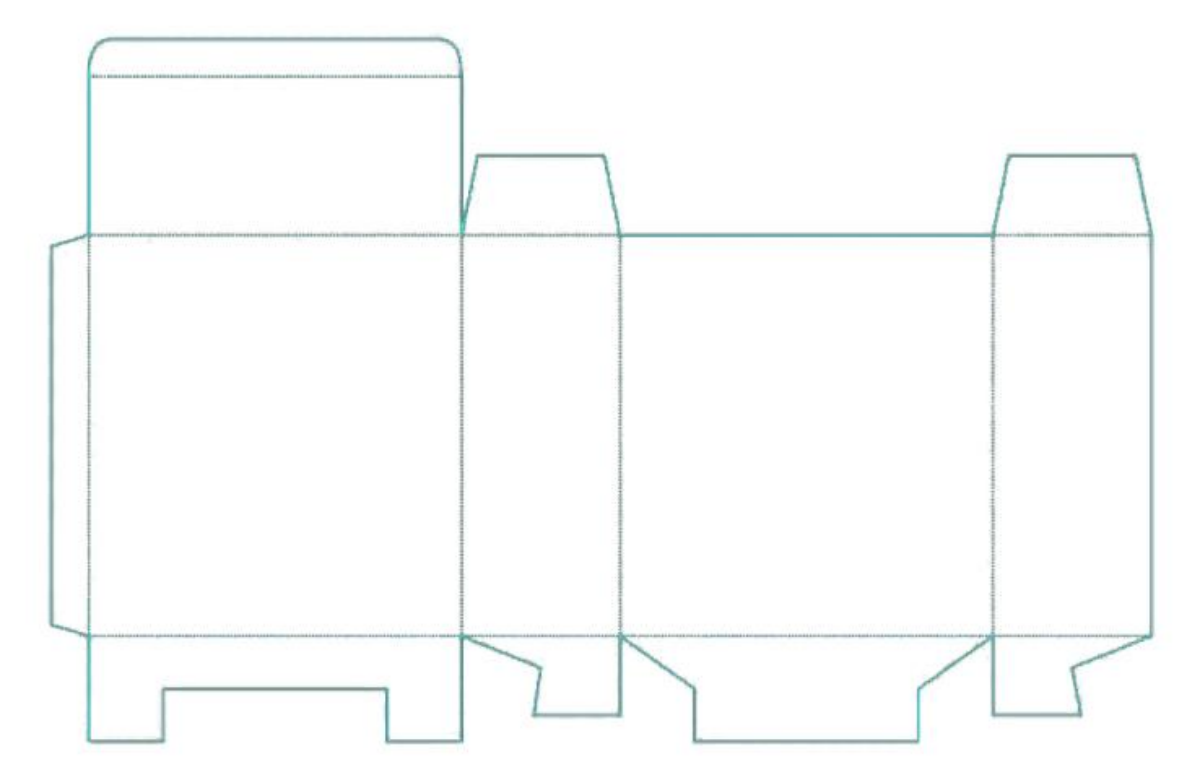
Basic Info.
| Product Name | Color Paper box with paper handle | Surface finish | Varnishing, Glossy Lamination, Matte Lamination |
| Box Style | Structure C | Logo Printing | oem |
| Material Gram | 300 gram ivory board | Origin | Ningbo, China |
| Artwork | AI, CAD, PDF,etc. | Sample | accept |
| Shape | Rectangle, customized | Sample Time | 5-7 Working Days |
| Color | CMYK Color, Pantone Color | Sample type | No printed sample; digital sample. |
| Thickness | 300 gsm ivory board-0.4mm; 350 gsm ivory board-0.47mm; 400 gsm ivory board-0.55mm. | Transport Package | Strong 5 ply Corrugated Carton |
| Window | Oem shape and size | Business term | FOB, CIF,DDU,etc. |
Detailed Images
Product Department: Quality assurance, to ensure that products are produced according to customer
requirements. Periodic checks and inspections are performed on each process.
Design Department: Experienced engineers provide design support in terms of structure and materials.
Sample Department: Provide free samples
within a certain period of time for customers to check the quality before ordering.
Inspection Department: A professional team inspects all products before shipment to ensure that the final
delivered products are free from defects or blemishes.
After-sales service: A professional service team is on call at any time to provide solutions and suggestions on product use and maintenance for customers' after-sales consultation.
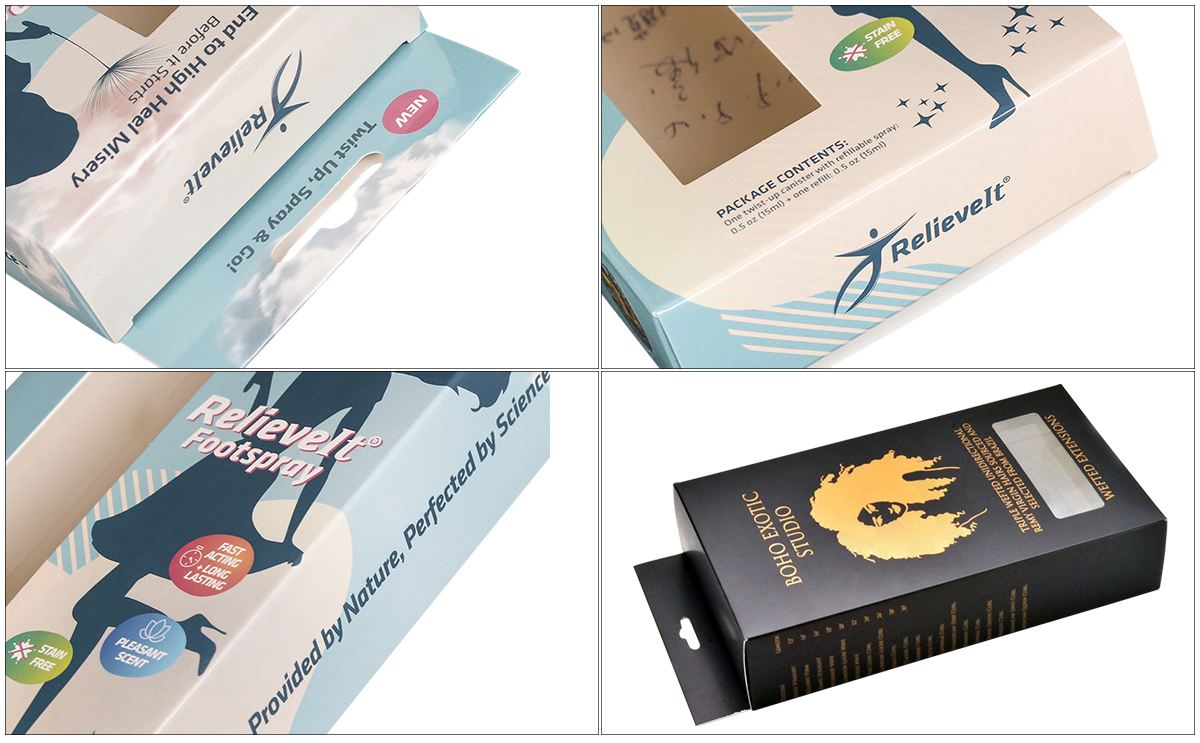
Material Structure and Application
The advantage of the paper packaging box is that it can be recycled and has good environmental protection performance, and it can also use different paper materials according to customer needs.
Kraft paper has high water resistance and stain resistance; batik printing paper has a good surface gloss, is easy to color, and has outstanding effects; coated paper has a metallic feel, good light transmittance, and outstanding printing effects;
UV marking; embossed board is mainly used for producing colorful cards or small boxes. In addition, there are UV light curing processing, electroplating processing, embossing printing processing and water-based tape packaging for customers to choose.
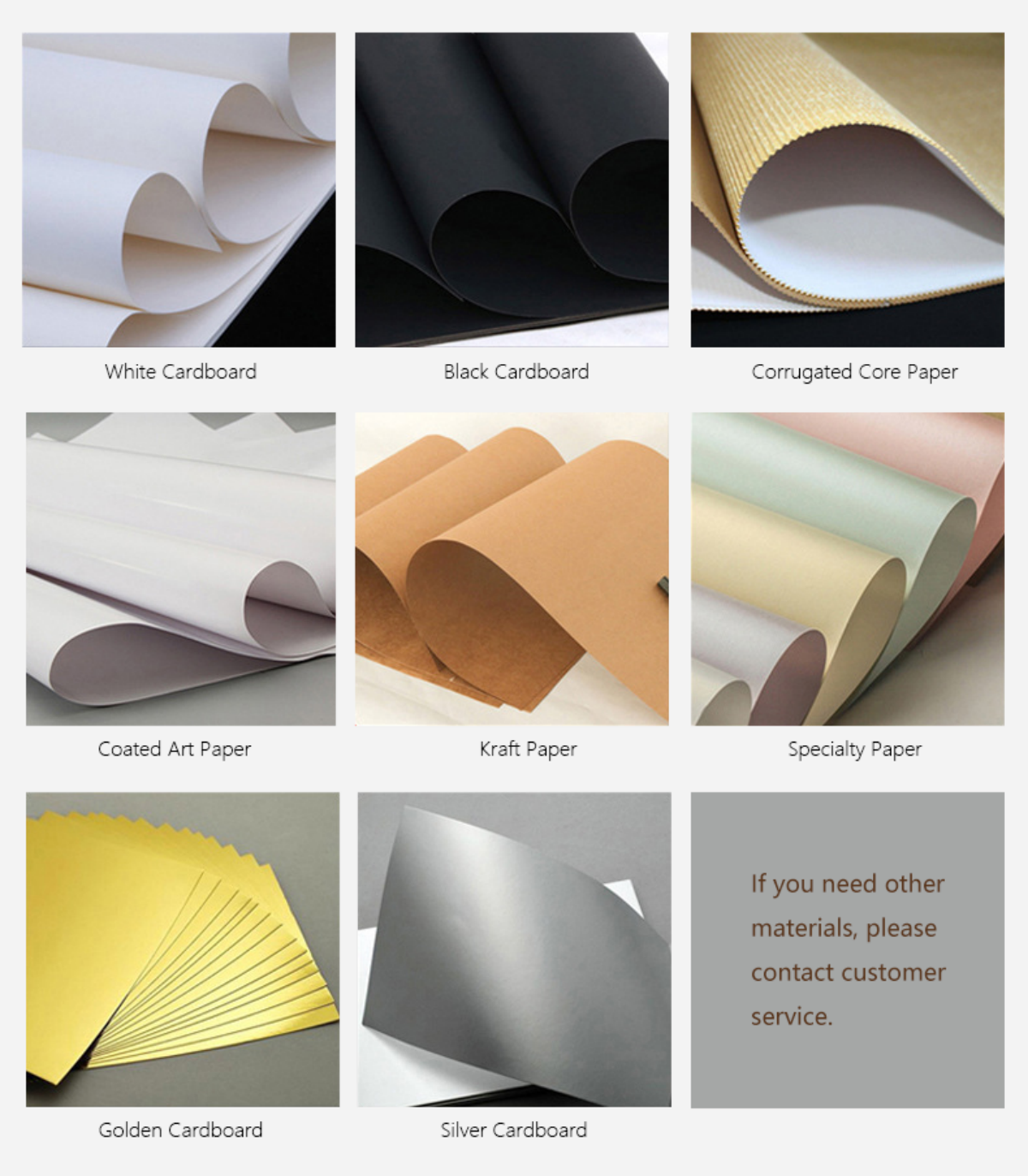
Box Type and Surface Treatment
Main structure
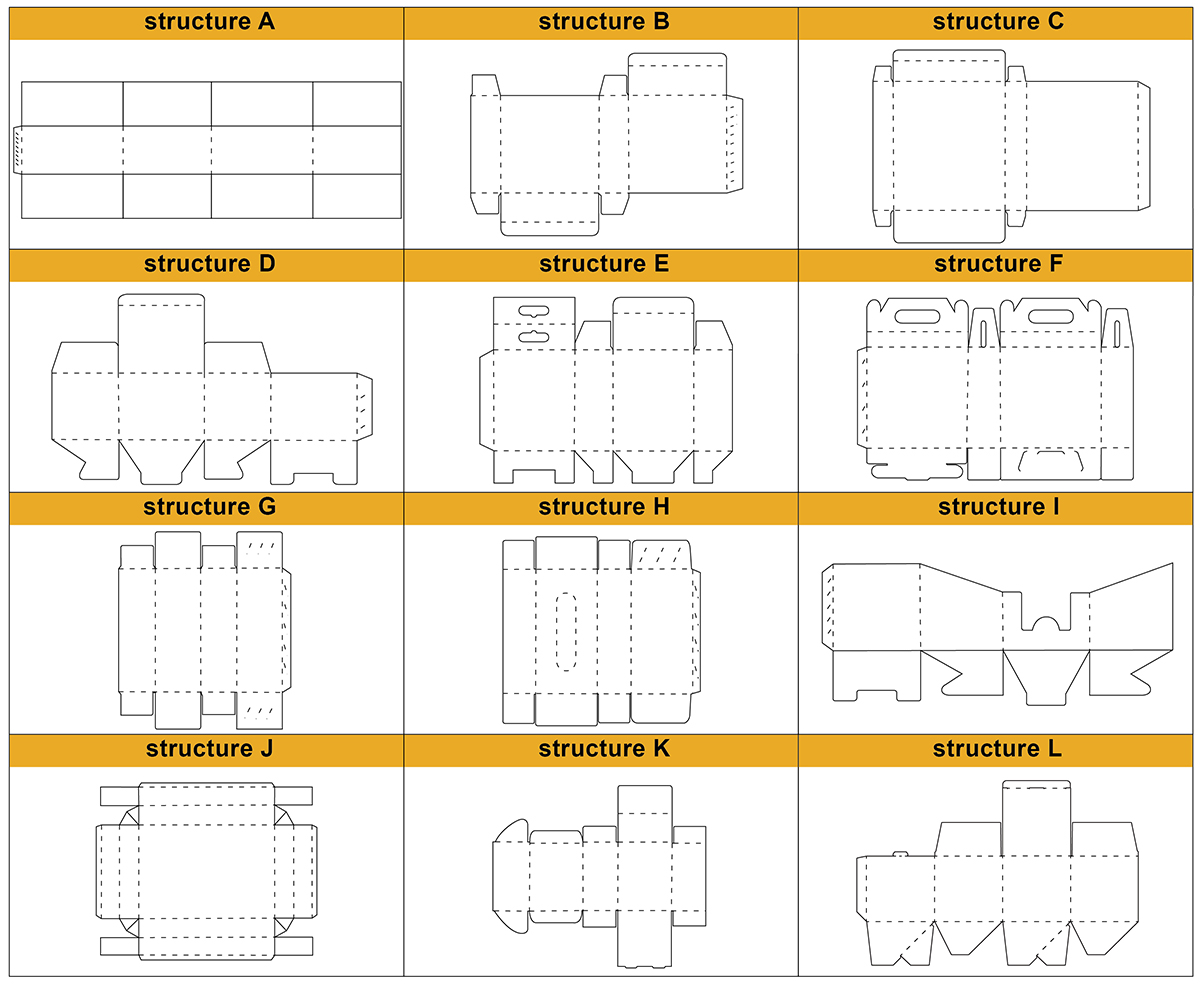
Surface Finishing
Printing surface treatments give printed products their unique look, allowing them to grab attention. In the market, Matt Lamination, Gloss Lamination, Hot Stamping, Hot Silver, Spot UV and Embossing are currently the most popular printing surface treatment technologies. These technologies can be used to directly print graphics or text on promotional slogans, and can also be used to change the overall decorative style of the housing.
Different surface treatment methods will cause different effects
1.Matte film: black/white/envelope/snow white/orange peel/star;
2.Laminated film: high gloss/thickness 0.03mm;
3.Bronzing: crystal gold/good gloss/good permanence;
4.Hot silver: shining like crystal sand / natural smell / making it born;
5.Spot UV: Super large UV processing area-4*5cm, high contrast, strong three-dimensional effect;
6.Concave-convex: 3D three-dimensional 'physical' effect, attracting eyeballs;
As a novice, if you want to choose the correct surface treatment method and achieve good results:
1)you must first make a budget carefully and choose the appropriate method according to the situation;
2)seek help from industry experts if necessary;
3) try Do some mock tests.In short, printing surface treatment is a magical knowledge; images, text or graphics can be imagined accordingly; different types of bionics can be used to present them instinctively.
Common Surface Treatment As Follows
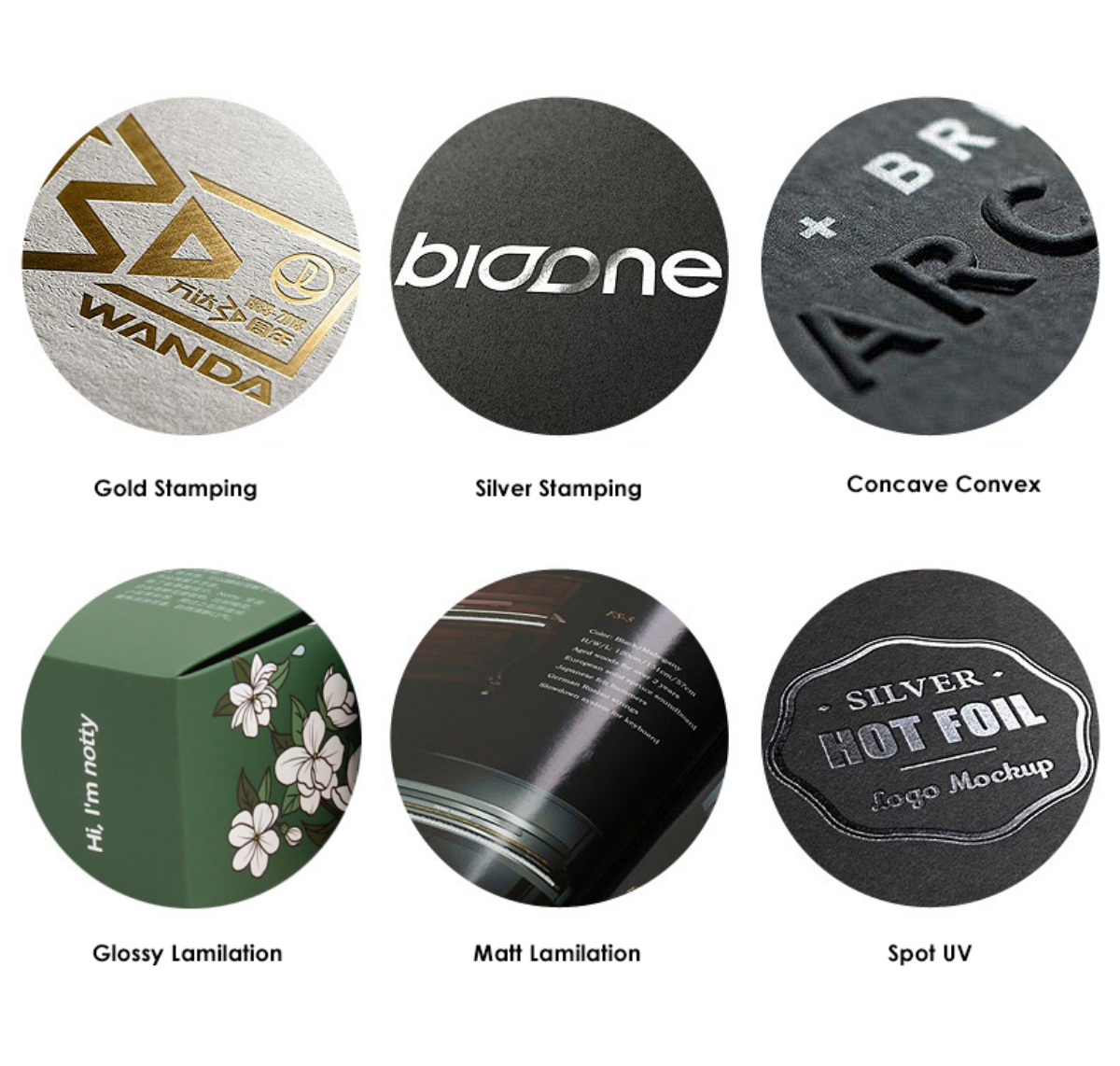
Customer Question & Answer
Please contact customer service for more information.
Your response of following questions will help us recommend the most suitable package.
Material Structure and Application
Paperboard is a thick paper-based material. While there is no rigid differentiation between paper and paperboard, paperboard is generally thicker (usually over 0.30 mm, 0.012 in, or 12 points) than paper and has certain superior attributes such as foldability and rigidity. According to ISO standards, paperboard is a paper with a grammage above 250 g/m2, but there are exceptions. Paperboard can be single- or multi-ply.
Paperboard can be easily cut and formed, is lightweight, and because it is strong, is used in packaging. Another end-use is high quality graphic printing, such as book and magazine covers or postcards.
Sometimes it is referred to as cardboard, which is a generic, lay term used to refer to any heavy paper pulp–based board, however this usage is deprecated in the paper, printing and packaging industries as it does not adequately describe each product type.
Terminology and classifications of paperboard are not always uniform. Differences occur depending on specific industry, locale, and personal choice. In general, the following are often used:
Boxboard or cartonboard: paperboard for folding cartons and rigid set-up boxes.
Folding boxboard (FBB): a bending grade capable of being scored and bending without fracture.
Kraft board: a strong virgin fiber board often used for beverage carriers. Often clay-coated for printing.
Solid bleached sulphate (SBS): clean white board used for foods etc. Sulphate refers to the kraft process.
Solid unbleached board (SUB): board made from unbleached chemical pulp.
Containerboard: a type of paperboard manufactured for the production of corrugated fiberboard.
Corrugated medium: the inner fluted portion of corrugated fiberboard.
Linerboard: a strong stiff board for one or both sides of corrugated boxes. It is the flat covering over the corrugating medium.
Other
Binder’s board: a paperboard used in bookbinding for making hardcovers.
Packaging applications
Box Type and Finish Surface
These box type are used for reference, it can be customized as well.
The surface treatment process of printed products generally refers to the post-processing process of printed products, in order to make the printed products more durable, convenient for transportation and storage, and look more high-end, atmospheric and high-grade. Printing surface treatment includes: lamination, spot UV, gold stamping, silver stamping, concave convex, embossing, hollow-carved, laser technology, etc.
Common Surface Treatment As Follows
Paper Type
White Card Paper
Both sides of the white card paper are white. The surface is smooth and flat, the texture is hard, thin and crisp, and can be used for double-sided printing. It has relatively uniform ink absorption and folding resistance.


